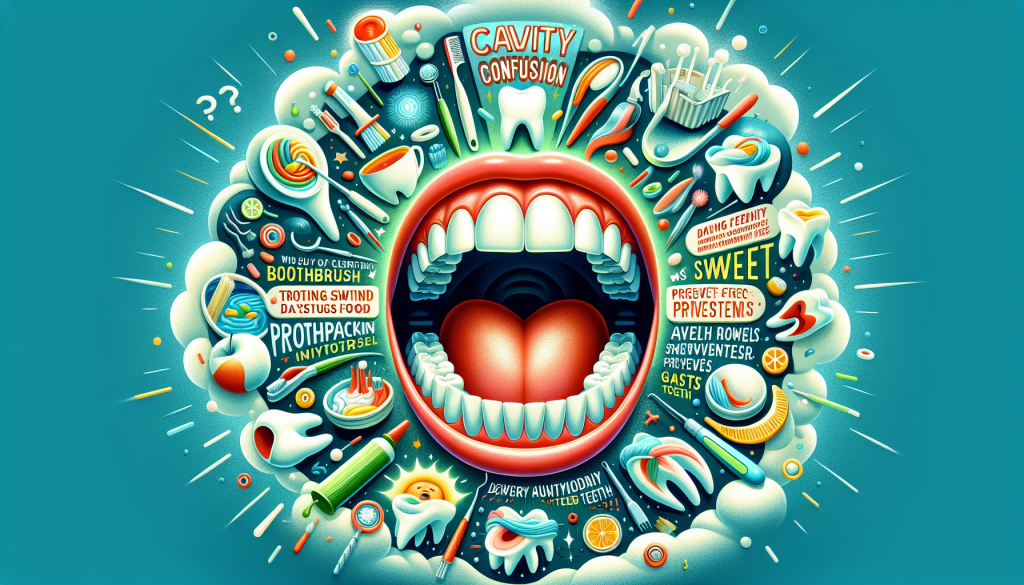
Cavity Confusion: Debunking Common Dental Myths
Cavity Confusion: Debunking Common Dental Myths
When it comes to oral health, there are many myths and misconceptions that people believe to be true. From home remedies for toothaches to the effectiveness of brushing teeth, it’s important to separate fact from fiction. One common area of confusion is cavities. In this article, we will debunk some of the most common dental myths surrounding cavities.
Myth #1: Sugar is the Main Cause of Cavities
It’s no secret that sugar can contribute to tooth decay, but it’s not the only culprit. Cavities are actually caused by a combination of factors, including bacteria, poor oral hygiene, and diet. When you consume sugary foods and drinks, the bacteria in your mouth feed on the sugars and produce acid, which can eat away at your tooth enamel. However, it’s not just sugar that can lead to cavities. Other foods and drinks, like chips and soda, can also contribute to the formation of cavities.
Myth #2: Brushing Too Hard or Too Often Can Damage Teeth
Some people believe that brushing their teeth too hard or too often can damage their teeth or gums. However, this is not entirely true. Brushing your teeth with a soft bristle toothbrush two times a day is recommended by dental professionals. Using a harder bristle or brushing with too much pressure can lead to gum recession and damage to the tooth enamel. It’s important to find a balance between not brushing enough and brushing too harshly.
Myth #3: Filling a Cavity Will Stop It From Growing
Many people believe that once a cavity is filled, it will no longer grow or cause any problems. However, this is not always the case. When a cavity is filled, the decayed portion of the tooth is removed and replaced with a filling material. If the filling is not properly sealed or if there is any remaining bacteria, the cavity can continue to grow and cause further damage. That’s why it’s important to maintain good oral hygiene and attend regular dental check-ups to catch any potential cavities early on.
Myth #4: Children Are More Prone to Cavities Than Adults
While it’s true that children may have more cavities than adults, it’s not because they are more prone to them. The truth is, children are still learning proper dental hygiene habits and may not brush or floss as effectively as adults. In addition, children are more likely to consume sugary snacks and drinks, which can lead to cavities. However, adults are not immune to cavities and can also suffer from them if they do not maintain good oral hygiene habits.
Myth #5: Natural Remedies Can Cure Cavities
With the rise in popularity of natural and holistic health approaches, many people believe that there are natural remedies to cure cavities. However, there is no evidence to support this claim. Once a cavity has formed, it cannot be reversed. The only way to treat a cavity is to have a dentist remove the decayed portion and fill it with a filling material. It’s important to not rely on natural remedies and instead, seek professional dental treatment for cavities.
In conclusion, there are many myths surrounding cavities, but it’s important to educate ourselves and seek professional advice from dentists. Remember to maintain good oral hygiene habits and attend regular dental check-ups to prevent and catch cavities early on. Don’t let cavity confusion get in the way of your oral health.